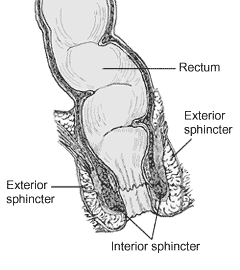Our website is made possible by displaying online advertisements to our visitors.
Please consider supporting us by disabling your ad blocker.
Defecation

Defecation (or defaecation) follows digestion, and is a necessary process by which organisms eliminate a solid, semisolid, or liquid waste material known as feces from the digestive tract via the anus or cloaca. The act has a variety of names ranging from the common, like pooping or crapping, to the technical, e.g. bowel movement, to the obscene (shitting), to the euphemistic ("doing a number two", "dropping a deuce" or "taking a dump"), to the juvenile ("making doo-doo"). The topic, usually avoided in polite company, can become the basis for some potty humor.
Humans expel feces with a frequency varying from a few times daily to a few times weekly.[1] Waves of muscular contraction (known as peristalsis) in the walls of the colon move fecal matter through the digestive tract towards the rectum. Undigested food may also be expelled within the feces, in a process called egestion. When birds defecate, they also expel urine and urates in the same mass, whereas other animals may also urinate at the same time, but spatially separated. Defecation may also accompany childbirth and death. Babies defecate a unique substance called meconium prior to eating external foods.
There are a number of medical conditions associated with defecation, such as diarrhea and constipation, some of which can be serious. The feces expelled can carry diseases, most often through the contamination of food. E. coli is a particular concern.
Before toilet training, human feces are most often collected into a diaper. Thereafter, in many societies people commonly defecate into a toilet. However, open defecation, the practice of defecating outside without using a toilet of any kind, is still widespread in some developing countries.[2] Some people defecate into the ocean. First world countries use sewage treatment plants and/or on-site treatment.
- ^ "The Basics of Constipation". WebMD. Retrieved 2020-05-26.
- ^ WHO and UNICEF (2017) Progress on Drinking Water, Sanitation and Hygiene: 2017 Update and SDG Baselines. Geneva: World Health Organization (WHO) and the United Nations Children’s Fund (UNICEF), 2017
Previous Page Next Page


